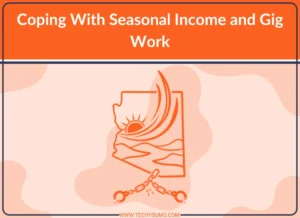I learned most of what I know about patience from watching bees. On a warm roof above the city, a hive looks busy every second. But the colony does not rush. It keeps a rhythm that feels both calm and forward moving. That rhythm is the sweet spot between waiting and living. It is the same balance we need when we are chasing goals without losing today. If you have ever tried to force honey out of a comb before it is capped, you know the result is a sticky mess. The same goes for life. Push too hard and you squeeze out the joy.
That tension shows up in our money choices, our careers, and our relationships. We want results, yet we also want to feel present. You might be saving for a certificate course, a first apartment, or a short-term cash need like an auto title loan in Virginia Beach. Whatever the situation, the question is the same. How do you stay grounded in the moment while keeping faith in your long arc.
Bees model a practical answer. They store for winter, and they still take time to dance on the comb to share directions to flowers. Their plan for later does not cancel out their capacity for delight now. We can borrow that approach.
Table of Contents
- Start with a daily micro ritual
- Use time horizons like a beekeeper uses frames
- Track feelings as well as facts
- Adopt the calm pace of steady foragers
- Give yourself visible proof of progress
- Practice selective slowness
- Respect seasons and rest
- Let small delights pay interest on big goals
- A simple check you can use tonight
Start with a daily micro ritual
Balance is not a grand plan. It is a small habit that you keep. Pick a micro ritual that helps you taste the day in less than five minutes. Breathe on the fire escape. Write a single line in a notebook about something you noticed on your commute. Stir your tea slowly and listen to its quiet. The point is not productivity. The point is to teach your nervous system that the present is worth noticing. Research on savoring shows that naming a good moment strengthens memory and well-being, which reinforces patience for bigger goals later. If you want a quick primer on savoring, the Greater Good Science Center has a clear overview of the practice and why it works; read their guide on how to savor positive experiences.
Use time horizons like a beekeeper uses frames
A frame holds comb at different stages. One is full, one is half drawn, one is empty and ready. Keep three-time horizons the same way.
Short horizon: today and this week. What brings you energy and steadiness right now.
Medium horizon: this season. What skill or habit are you building by the end of the quarter.
Long horizon: the next year or two. What is the storyline you are trying to write for yourself.
When you check your life the way a beekeeper inspects a hive, you do not panic if one frame is still empty. You ask whether the overall colony is healthy. That shift keeps patience from becoming a grind. It also keeps enjoyment from becoming aimless.
Track feelings as well as facts
Most goal systems focus on numbers. You need the numbers, the savings total, the pages read, the miles run. But feelings are data too. After each effort, note two quick lines. What did this work do to my mood. What part did I enjoy enough to repeat. This is not fluffy. If a practice fuels you, it is more likely to stick. That stickiness is how patience turns into momentum instead of mere endurance. For a structured approach to planning that still leaves room for reflection, look at the simple breakdown of SMART goals from the American Psychological Association. Use it lightly. Let it serve the life you want, not the other way around.
Adopt the calm pace of steady foragers
Foragers do not empty a field in one visit. They make many small trips, guided by the waggle dance that encodes direction and distance. Try something similar. Replace force with frequency. Ten slow reps with good form beat a single heroic burst that leaves you sore and discouraged. Two pages written every morning beat a weekend sprint that stalls for a month. Frequency builds trust with yourself, and trust is the quiet cousin of patience.
Give yourself visible proof of progress
Hives make progress visible. The comb fills cell by cell. Create your own visible proof. A jar for every finished workout. A playlist that grows with every study session. A photo at the end of each week of one small thing you repaired or learned. When your brain sees proof, it relaxes. That relaxation makes room for enjoyment right now, not only later.
Practice selective slowness
Not everything deserves the same speed. Bees hurry when a storm is coming, and they linger on a rich patch of clover. Be deliberate about what you slow down and what you speed up. Slow down for conversations, meals, craft, and sleep. Speed up for low value chores that can be batched. This is not about being perfect. It is about matching your pace to what matters, so that enjoyment is protected and patience is not spent on the wrong things.
Respect seasons and rest
Even the best hive rests in winter. Progress is not a straight climb. It is a set of seasons. Honor the season you are in. If you are juggling a new job and family care, your season may be about foundation and learning. If you are in a more open stretch, your season may be skill building and exploration. Either way, schedule real rest. Rest is not a reward for finishing. It is fuel for continuing. Without it, patience thins out and enjoyment goes dark.
Let small delights pay interest on big goals
Think of enjoyment as emotional interest paid on the principal of your long plans. You can reinvest that interest into patience. A walk in late light can be enough. A clean desk. A laugh with a neighbor. These are not distractions. They are deposits in your ability to keep going. Joy now and faith in later are not rivals. They are partners that trade energy back and forth.
A simple check you can use tonight
Before you sleep, ask two questions. What did I savor today. What did I move forward today. If you can answer both, even with tiny examples, you are balancing patience and enjoyment. If you cannot, choose one small action for tomorrow morning that will help. Put your shoes by the door. Open the book to the next page. Set out a mug and a tea bag. Make it easy to begin. Beginning is the real secret. Patience grows from many honest beginnings, and enjoyment blooms when you notice them.
In time, you will find your own rooftop rhythm. You will store for winter without skipping the dance on the comb. You will hold your plans with a gentle grip, and you will let the present taste sweet. That is the balance. Savor now. Believe in later. Keep the hive healthy.






